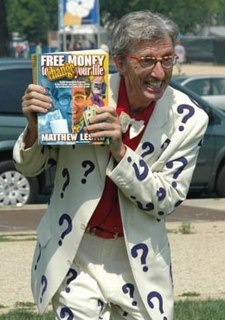A Quote by Donald Trump
The New York Times published a full-page hit piece with another claim from an individual who has been totally discredited based on the many many emails and letters she has sent to our office over the years looking for work. The New York Times refused to use the evidence that we presented. If they used it, if they would have looked, they would have said, there's no story here.
Related Quotes
I used to work in an office in New York for this terrible company, and we used to have staff meetings, and I would just count how many times the boss would use the phrase "in terms of." And he would say it like 30 or 40 times. And sometimes he would just say it. He'd be like, "Uhh, in terms of, how are we doing with that?" I realized nobody knows what they're talking about. Everyone's bullshitting. Maybe not everybody, but certainly a lot of people.
Everything I learned and didn't do in New York I would put into place here in the London West Hollywood. It's fascinating, when you look at the critics' reviews, and we had a great one in the New York Observer and all that, and then the New York Times came and it was a devastation; two stars out of four. They said that I played safe because it wasn't fireworks. Then they judged the persona over the substance that was on the plate.
Recently it's become much to my surprise, something that does happen. For example, I used to get almost all of my stories, and it's probably still true, from newspapers. Primarily from The New York Times. No one ever really thinks of The New York Times as a tabloid newspaper and it isn't a tabloid newspaper. But there is a tabloid newspaper within The New York Times very, very often.
The New York Times ran a story about [Jeff] Sessions meeting the Russian ambassador, and they ran Claire McCaskill's tweet excoriating Sessions for doing this and saying that he should resign. Well, then it was produced that Claire McCaskill had, in fact, sent two other tweets where she was bragging about having spent time with the Russian ambassador. So the New York Times, rather than print that, just removed her from the whole story.
I met Peter Brook, the theater director, who's been based in Paris for many years at the Bouffes du Nord. I admire him tremendously. Some years ago, he was in New York, and he gave an interview with The Times, and what he said was this: "In my work, I try to capture the closeness of the everyday and the distance of myth. Because, without the closeness, you can't be moved, and without the distance, you can't be amazed." Isn't that extraordinary?































